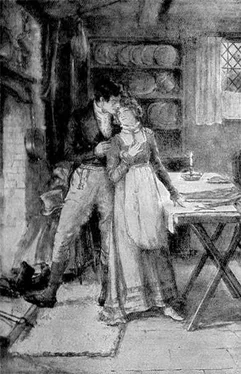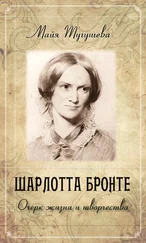Шарлотта Бронте - Shirley
Здесь есть возможность читать онлайн «Шарлотта Бронте - Shirley» весь текст электронной книги совершенно бесплатно (целиком полную версию без сокращений). В некоторых случаях можно слушать аудио, скачать через торрент в формате fb2 и присутствует краткое содержание. Год выпуска: 2014, Издательство: epubBooks Classics, Жанр: Классическая проза, на английском языке. Описание произведения, (предисловие) а так же отзывы посетителей доступны на портале библиотеки ЛибКат.
- Название:Shirley
- Автор:
- Издательство:epubBooks Classics
- Жанр:
- Год:2014
- ISBN:нет данных
- Рейтинг книги:3 / 5. Голосов: 1
-
Избранное:Добавить в избранное
- Отзывы:
-
Ваша оценка:
- 60
- 1
- 2
- 3
- 4
- 5
Shirley: краткое содержание, описание и аннотация
Предлагаем к чтению аннотацию, описание, краткое содержание или предисловие (зависит от того, что написал сам автор книги «Shirley»). Если вы не нашли необходимую информацию о книге — напишите в комментариях, мы постараемся отыскать её.
Shirley — читать онлайн бесплатно полную книгу (весь текст) целиком
Ниже представлен текст книги, разбитый по страницам. Система сохранения места последней прочитанной страницы, позволяет с удобством читать онлайн бесплатно книгу «Shirley», без необходимости каждый раз заново искать на чём Вы остановились. Поставьте закладку, и сможете в любой момент перейти на страницу, на которой закончили чтение.
Интервал:
Закладка:
"Not in its results, at least. No," she added, in a softer tone; "God mingles something of the balm of mercy even in vials of the most corrosive woe. He can so turn events that from the very same blind, rash act whence sprang the curse of half our life may flow the blessing of the remainder. Then I am of a peculiar disposition—I own that—far from facile, without address, in some points eccentric. I ought never to have married. Mine is not the nature easily to find a duplicate or likely to assimilate with a contrast. I was quite aware of my own ineligibility; and if I had not been so miserable as a governess, I never should have married; and then―"
Caroline's eyes asked her to proceed. They entreated her to break the thick cloud of despair which her previous words had seemed to spread over life.
"And then, my dear, Mr.—that is, the gentleman I married—was, perhaps, rather an exceptional than an average character. I hope, at least, the experience of few has been such as mine was, or that few have felt their sufferings as I felt mine. They nearly shook my mind; relief was so hopeless, redress so unattainable. But, my dear, I do not wish to dishearten; I only wish to warn you, and to prove that the single should not be too anxious to change their state, as they may change for the worse."
"Thank you, my dear madam. I quite understand your kind intentions, but there is no fear of my falling into the error to which you allude. I, at least, have no thoughts of marriage, and for that reason I want to make myself a position by some other means."
"My dear, listen to me. On what I am going to say I have carefully deliberated, having, indeed, revolved the subject in my thoughts ever since you first mentioned your wish to obtain a situation. You know I at present reside with Miss Keeldar in the capacity of companion. Should she marry (and that she will marry ere long many circumstances induce me to conclude), I shall cease to be necessary to her in that capacity. I must tell you that I possess a small independency, arising partly from my own savings, and partly from a legacy left me some years since. Whenever I leave Fieldhead I shall take a house of my own. I could not endure to live in solitude. I have no relations whom I care to invite to close intimacy; for, as you must have observed, and as I have already avowed, my habits and tastes have their peculiarities. To you, my dear, I need not say I am attached; with you I am happier than I have ever been with any living thing" (this was said with marked emphasis). "Your society I should esteem a very dear privilege—an inestimable privilege, a comfort, a blessing. You shall come to me, then. Caroline, do you refuse me? I hope you can love me?"
And with these two abrupt questions she stopped.
"Indeed, I do love you," was the reply. "I should like to live with you. But you are too kind."
"All I have," went on Mrs. Pryor, "I would leave to you. You should be provided for. But never again say I am too kind . You pierce my heart, child!"
"But, my dear madam—this generosity—I have no claim―"
"Hush! you must not talk about it. There are some things we cannot bear to hear. Oh! it is late to begin, but I may yet live a few years. I can never wipe out the past, but perhaps a brief space in the future may yet be mine."
Mrs. Pryor seemed deeply agitated. Large tears trembled in her eyes and rolled down her cheeks. Caroline kissed her, in her gentle, caressing way, saying softly, "I love you dearly. Don't cry."
But the lady's whole frame seemed shaken. She sat down, bent her head to her knee, and wept aloud. Nothing could console her till the inward storm had had its way. At last the agony subsided of itself.
"Poor thing!" she murmured, returning Caroline's kiss, "poor lonely lamb! But come," she added abruptly—"come; we must go home."
For a short distance Mrs. Pryor walked very fast. By degrees, however, she calmed down to her wonted manner, fell into her usual characteristic pace—a peculiar one, like all her movements—and by the time they reached Fieldhead she had re–entered into herself. The outside was, as usual, still and shy.
Chapter XXII
Two Lives
Only half of Moore's activity and resolution had been seen in his defence of the mill; he showed the other half (and a terrible half it was) in the indefatigable, the relentless assiduity with which he pursued the leaders of the riot. The mob, the mere followers, he let alone. Perhaps an innate sense of justice told him that men misled by false counsel and goaded by privations are not fit objects of vengeance, and that he who would visit an even violent act on the bent head of suffering is a tyrant, not a judge. At all events, though he knew many of the number, having recognized them during the latter part of the attack when day began to dawn, he let them daily pass him on street and road without notice or threat.
The leaders he did not know. They were strangers—emissaries from the large towns. Most of these were not members of the operative class. They were chiefly "down–draughts," bankrupts, men always in debt and often in drink, men who had nothing to lose, and much, in the way of character, cash, and cleanliness, to gain. These persons Moore hunted like any sleuth–hound, and well he liked the occupation. Its excitement was of a kind pleasant to his nature. He liked it better than making cloth.
His horse must have hated these times, for it was ridden both hard and often. He almost lived on the road, and the fresh air was as welcome to his lungs as the policeman's quest to his mood; he preferred it to the steam of dye–houses. The magistrates of the district must have dreaded him. They were slow, timid men; he liked both to frighten and to rouse them. He liked to force them to betray a certain fear, which made them alike falter in resolve and recoil in action—the fear, simply, of assassination. This, indeed, was the dread which had hitherto hampered every manufacturer and almost every public man in the district. Helstone alone had ever repelled it. The old Cossack knew well he might be shot. He knew there was risk; but such death had for his nerves no terrors. It would have been his chosen, might he have had a choice.
Moore likewise knew his danger. The result was an unquenchable scorn of the quarter whence such danger was to be apprehended. The consciousness that he hunted assassins was the spur in his high–mettled temper's flank. As for fear, he was too proud, too hard–natured (if you will), too phlegmatic a man to fear. Many a time he rode belated over the moors, moonlit or moonless as the case might be, with feelings far more elate, faculties far better refreshed, than when safety and stagnation environed him in the counting–house. Four was the number of the leaders to be accounted for. Two, in the course of a fortnight, were brought to bay near Stilbro'; the remaining two it was necessary to seek farther off. Their haunts were supposed to lie near Birmingham.
Meantime the clothier did not neglect his battered mill. Its reparation was esteemed a light task, carpenters' and glaziers' work alone being needed. The rioters not having succeeded in effecting an entrance, his grim metal darlings—the machines—had escaped damage.
Whether during this busy life—whether while stern justice and exacting business claimed his energies and harassed his thoughts—he now and then gave one moment, dedicated one effort, to keep alive gentler fires than those which smoulder in the fane of Nemesis, it was not easy to discover. He seldom went near Fieldhead; if he did, his visits were brief. If he called at the rectory, it was only to hold conferences with the rector in his study. He maintained his rigid course very steadily. Meantime the history of the year continued troubled. There was no lull in the tempest of war; her long hurricane still swept the Continent. There was not the faintest sign of serene weather, no opening amid "the clouds of battle–dust and smoke," no fall of pure dews genial to the olive, no cessation of the red rain which nourishes the baleful and glorious laurel. Meantime, Ruin had her sappers and miners at work under Moore's feet, and whether he rode or walked, whether he only crossed his counting–house hearth or galloped over sullen Rushedge, he was aware of a hollow echo, and felt the ground shake to his tread.
Читать дальшеИнтервал:
Закладка:
Похожие книги на «Shirley»
Представляем Вашему вниманию похожие книги на «Shirley» списком для выбора. Мы отобрали схожую по названию и смыслу литературу в надежде предоставить читателям больше вариантов отыскать новые, интересные, ещё непрочитанные произведения.
Обсуждение, отзывы о книге «Shirley» и просто собственные мнения читателей. Оставьте ваши комментарии, напишите, что Вы думаете о произведении, его смысле или главных героях. Укажите что конкретно понравилось, а что нет, и почему Вы так считаете.











